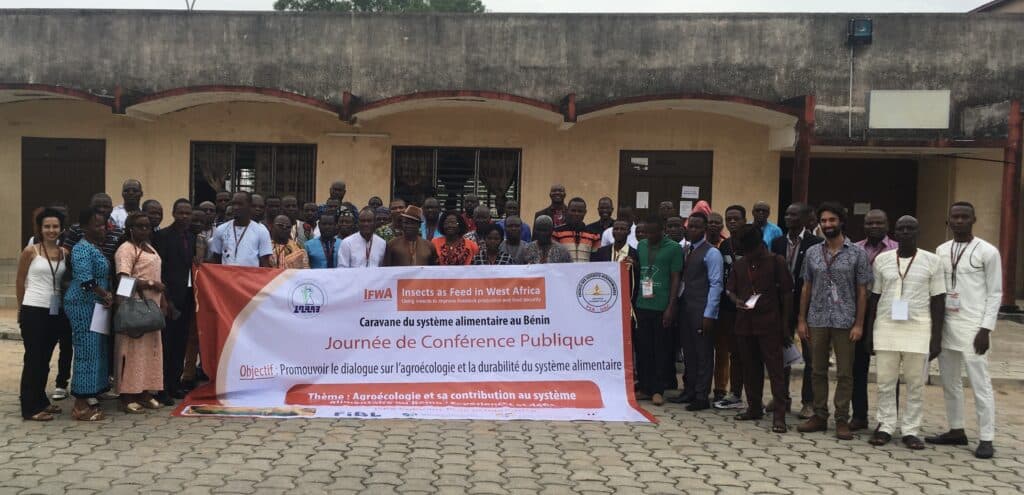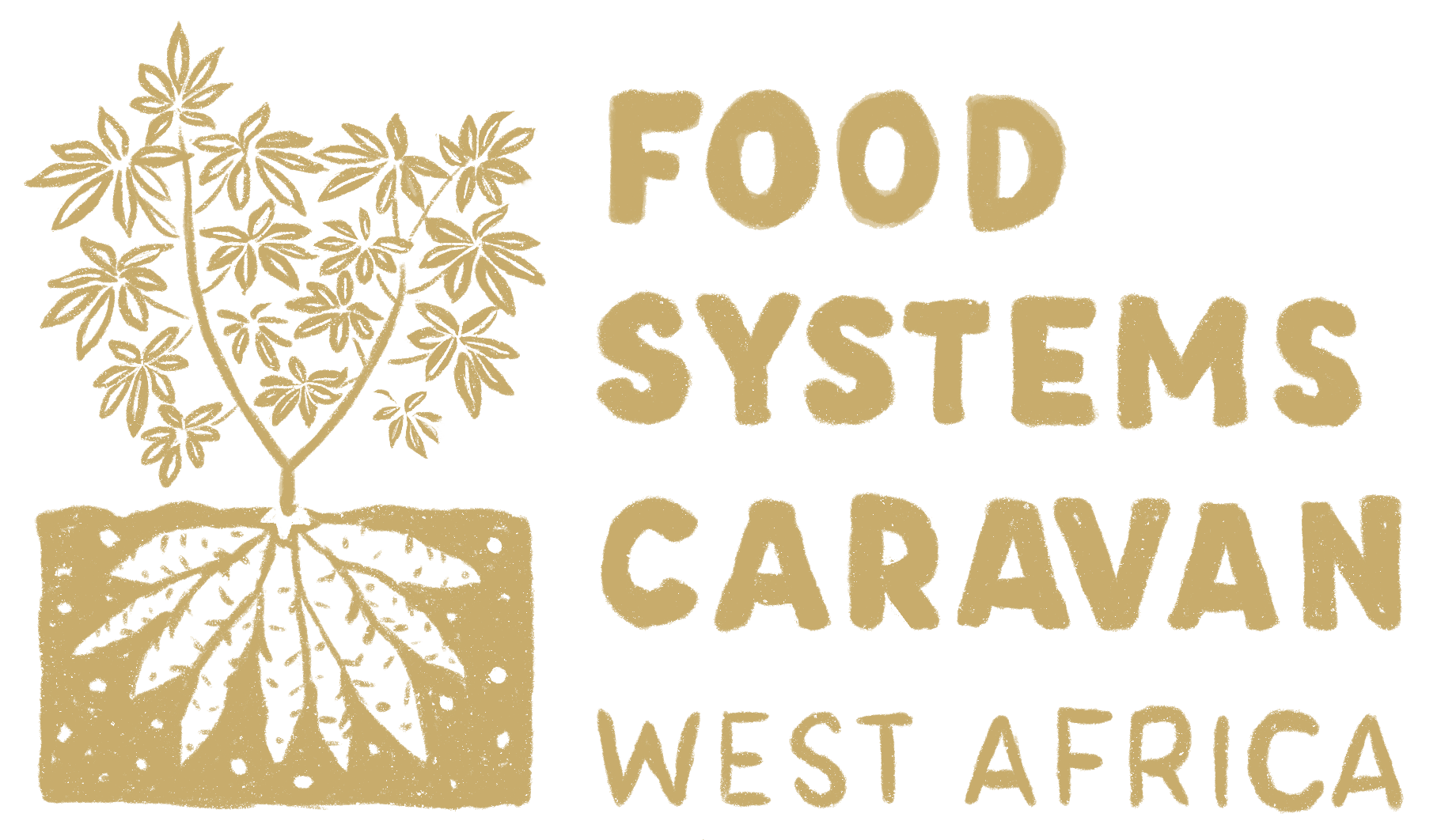[Français ci-dessous] The fourth conference organized by the food systems caravan and our local partners INRAB and the IFWA project was held in Cotonou, Benin. The event counted with the participation of around 80 academic and non-academic actors, such as representatives from NGOs, the private sector and public institutions. The title of the conference was “Agroecology and its contribution for the food systems of Benin: Experiences and challenges”, with seven different presentations about topics such as the relevance of agroecology and systems thinking approaches for the transformation of food systems, agroforestry, the sustainable use of insects as feed for poultry and fish, the use of plants as an alternative to pesticides in agriculture, the sustainable intensification of goat milk production as an alternative to cow milk, and the results of the project “agro-ecological transition of cotton systems in Benin”. The Participants then split in four thematic groups to discuss and draft recommendations to policy makers around the following topics: Agroforestry in Benin, upscale of agro-ecological principles at the national level, strategies to link science and practice and the potential of organic farming in the country. The national TV chain RTB as well as other online media were present and covered the event.
La quatrième conférence organisée par la caravane des systèmes alimentaires et nos partenaires locaux INRAB et le projet IFWA s’est tenue à Cotonou, Bénin. L’événement a compté avec la participation d’environ 80 acteurs universitaires et non universitaires, tels que des représentants d’ONG, du secteur privé et d’institutions publiques. Le titre de la conférence était “L’agro-écologie et sa contribution aux systèmes alimentaires du Bénin : Expériences et défis”, avec sept présentations différentes sur des thèmes tels que la pertinence de l’agro-écologie et des approches systémiques pour la transformation des systèmes alimentaires, l’agroforesterie, l’utilisation durable des insectes comme aliments pour volailles et poissons, l’utilisation des plantes comme alternative aux pesticides en agriculture, l’intensification durable de la production de lait de chèvre comme alternative au lait de vache, et les résultats du projet “transition agro-écologique des systèmes cotonniers au Bénin”. Les participants se sont ensuite répartis en quatre groupes thématiques pour discuter et rédiger des recommandations à l’intention des décideurs sur les sujets suivants : L’agroforesterie au Bénin, mise en échelle des principes agro-écologiques au plan national, stratégies pour relier science et pratique et le potentiel de l’agriculture biologique au Bénin.







































